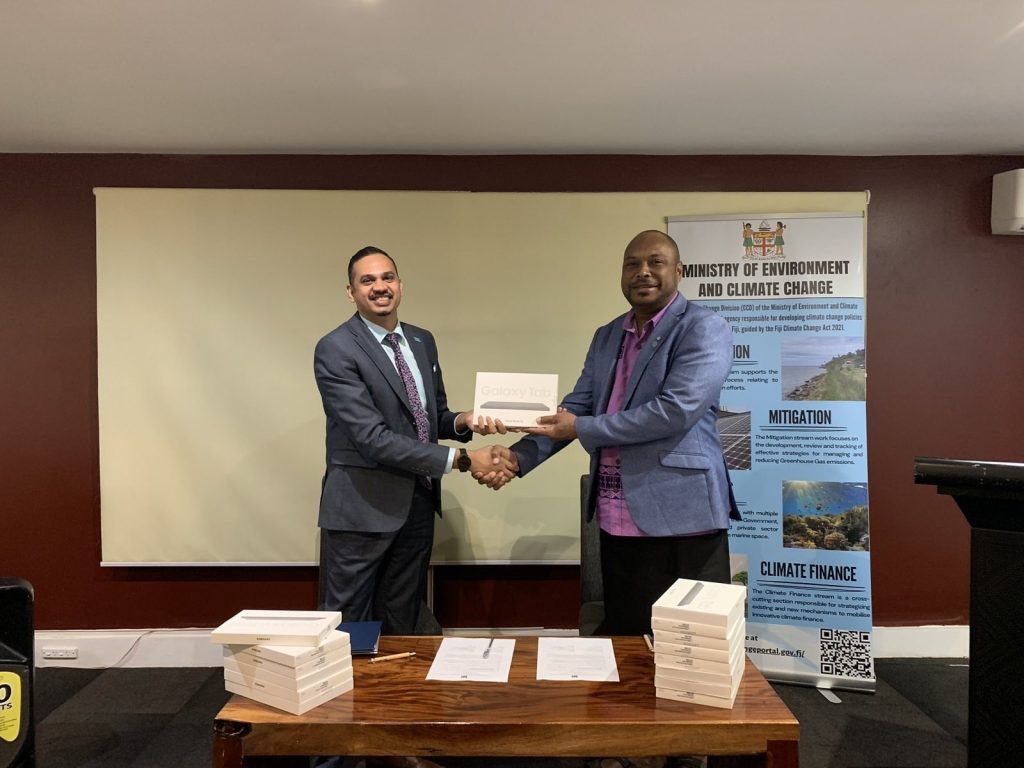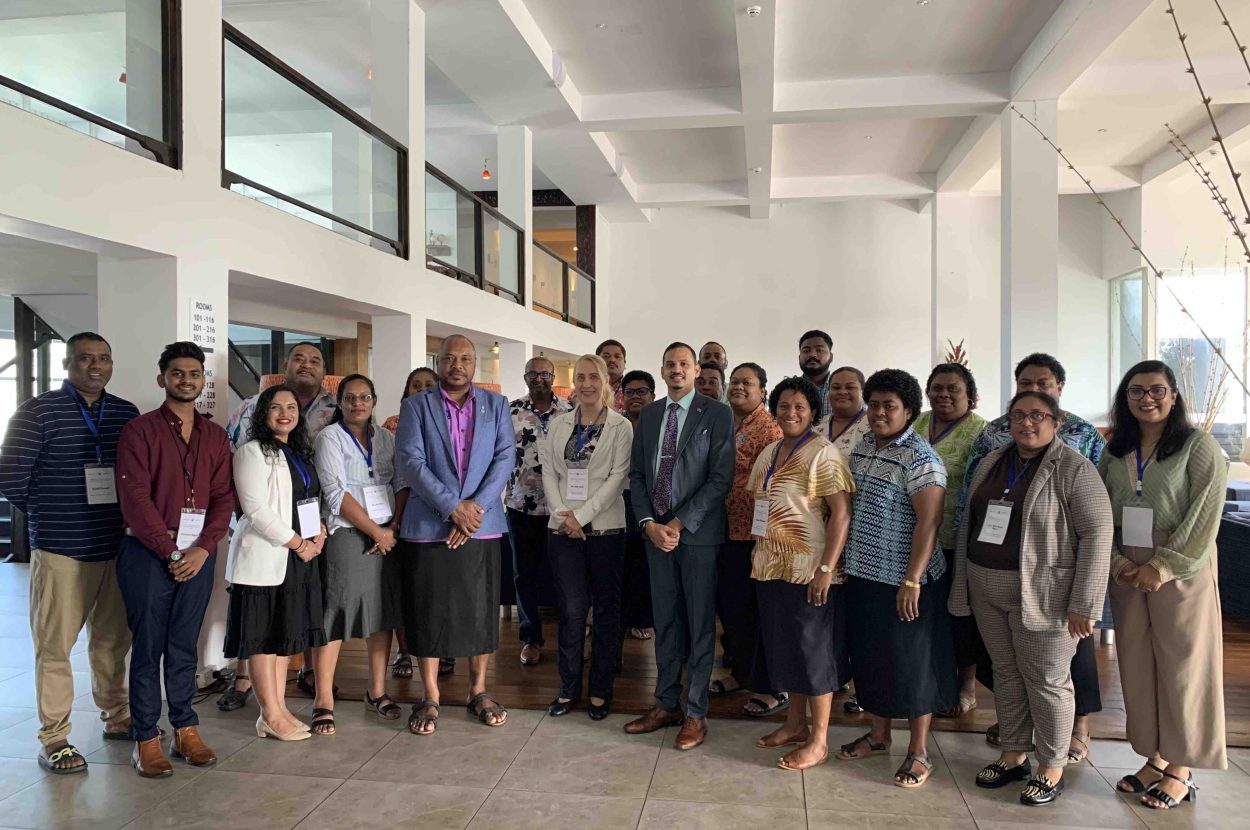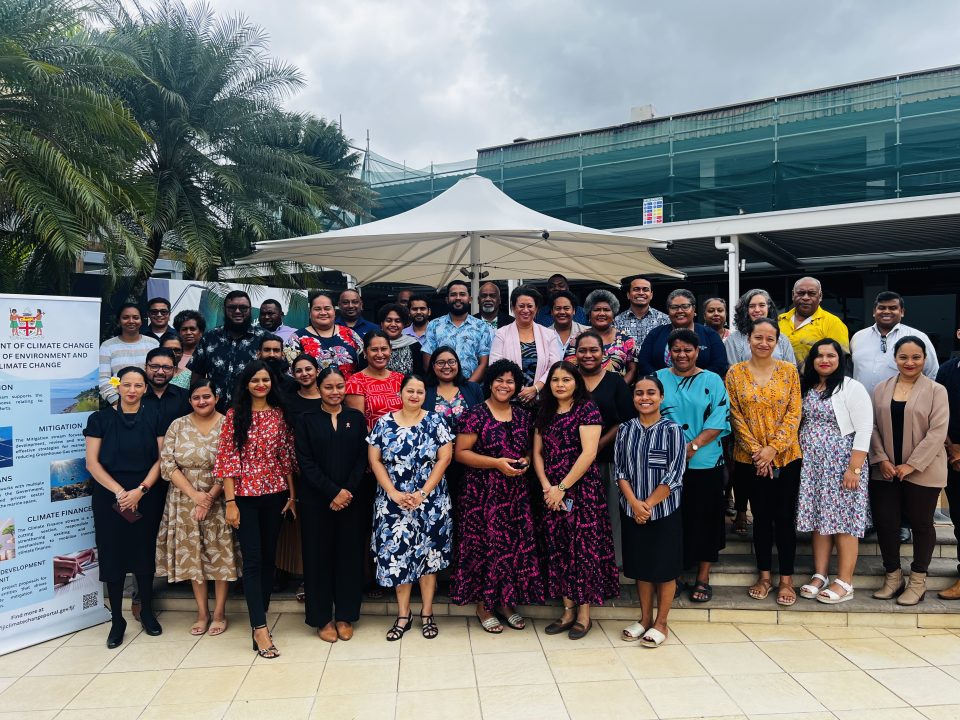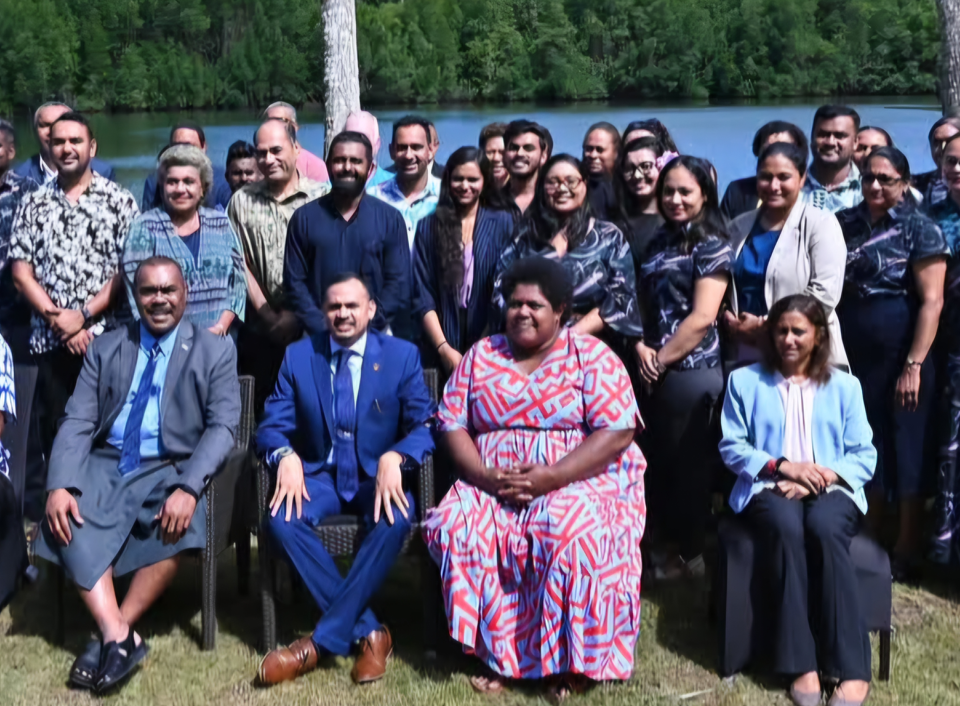
Workshop on Supporting National Greenhouse Gas Inventories and Livestock Data Development
04/07/2024
Workshop on Building Resilient Communities: Integrating Adaptation Strategies into Local Planning in Fiji
01/08/2024 The three-day (2-4 July, 2024) technical workshop on the Agricultural Production Survey, as part of the Phase II of the Initiative for Climate Action Transparency (ICAT) Project for Fiji brings together specialists and statisticians in agricultural surveys across Fiji.
The three-day (2-4 July, 2024) technical workshop on the Agricultural Production Survey, as part of the Phase II of the Initiative for Climate Action Transparency (ICAT) Project for Fiji brings together specialists and statisticians in agricultural surveys across Fiji.
The workshop was opened by, the Permanent Secretary for Ministry of Environment and Climate Change (MECC), Dr. Sivendra Michael, who highlighted the importance of data in modern economies and the role of transparency in climate action.
He addressed Fiji’s commitment to transparency noting that “the 2018-2030 National Climate Change Policy lists Transparency and Communication as one of its eight guiding principles. The Government’s commitment to transparency ensures that all stakeholders have access to information. Transparency in reporting, data management, and monitoring is crucial for meeting Fiji’s commitments to international frameworks and agreements”.
Acknowledging Fiji’s vulnerability to climate change, Dr. Michael added, “As we are all aware, Fiji is one of the least contributors to climate change but remains one of the most vulnerable to its impacts. Climate change impacts agriculture, compromising agricultural productivity, economic stability, and food security. The agriculture sector remains a vital part of the Fijian economy, supporting the livelihoods of approximately three hundred thousand Fijians according to the 2020 Agriculture Census”.
In Fiji’s Greenhouse Gas (GHG) Inventory Report, 2023, Fiji emitted approximately 49.8 million gigagrams of Carbon Dioxide equivalence, with the agriculture sector contributing 13.14 percent of these emissions, making it the third-largest emitter after the energy, and forestry and other land use sectors.
The workshops focus is on improving data collection for GHG emissions calculations, particularly from livestock category, to address the significant emissions from enteric fermentation. It aims to build officers’ capacity for specific data collection to calculate GHG emissions accurately. An added benefit of this phase is the provision of electronic tablets to the extension officers to facilitate data collection at the farm level. Dr. Sivendra Michael handed over 15 tablets purchased for the Agriculture Survey to Dr. Tekini Nakidakida, Deputy Secretary for the Ministry of Agriculture and Waterways, during the workshop at the Pearl Resort.
The event underscores the importance of enhancing the existing survey to ensure comprehensive data collection addressing both productivity and GHG emissions.
The ICAT Phase II project is funded by the United Nations Office of Project Services (UNOPS) and implemented by the Ministry of Environment and Climate Change with technical support from the Greenhouse Gas Management Institute (GHGMI) and the ICAT Secretariat.






